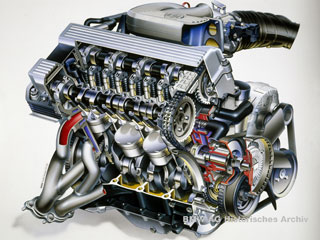BMW 318ti: A Comprehensive Guide to This Compact Giant
BMW 318ti: A Comprehensive Guide to This Compact Giant
Blog Article
Important Factors To Consider for Picking the Ideal Engine for Your Requirements
In the world of picking the perfect engine to fulfill your requirements, a number of critical variables demand thorough factor to consider to make certain optimal performance and effectiveness. From the nuanced balance in between power and efficiency to the often-overlooked facets of upkeep and service demands, each element plays a pivotal function in figuring out the most appropriate engine for your specific requirements.
Power and Performance
When reviewing engines for optimum performance, it is critical to focus on both power output and efficiency. Power result determines the capability of an engine to create power, which directly influences its performance. A high power output is essential for requiring jobs such as high-speed needs or durable applications. It makes sure that the engine can deal with the work successfully and successfully. Nevertheless, power alone is not enough; efficiency plays a significant function in establishing the general performance of an engine. Performance describes exactly how well the engine converts gas right into usable energy. A more effective engine will certainly provide better mileage, reduced emissions, and decreased operating expenses. Striking the best equilibrium in between power output and effectiveness is key to choosing an engine that meets your particular requirements. When making this decision, it is crucial to take into consideration elements such as the planned usage of the engine, ecological effect, and lasting cost effects. By meticulously evaluating both power and efficiency, you can pick an engine that supplies optimum performance and satisfies your demands efficiently.
Fuel Efficiency and Economic Situation
In the realm of engine selection, the factor to consider of gas performance and economic situation holds critical significance. Gas effectiveness describes the engine's capability to transform gas into energy with minimal waste, straight influencing operating expense and environmental sustainability. bmw 318ti. When selecting an engine, reviewing its fuel economic situation is vital to identify long-term financial savings and environmental effect. Engines with greater fuel effectiveness not just decrease fuel expenditures but likewise reduce carbon exhausts, adding to a greener procedure.

Compatibility and Application
Taking into consideration the gas performance and economic climate of an engine, the next essential element to address is its compatibility and application within particular operational contexts. Compatibility refers to just how well the engine incorporates with the overall system or equipment it powers. It includes variables such as physical measurements, installing choices, electric user interfaces, and control systems. Guaranteeing compatibility is crucial to protect against concerns such as getting too hot, resonances, or power imbalances (bmw 318ti).
In addition, the application of the engine is equally essential. Various engines are developed for particular purposes, whether it be industrial machinery, aquatic vessels, automobiles, or power generators. Understanding the designated application permits the choice of an engine that can provide the required power result, torque, and functional qualities. A high-revving engine made for efficiency cars and trucks would not be ideal for durable building tools that calls for high torque at low speeds.
Upkeep and Solution Demands
Maintenance and service needs play an essential role in making sure the durability and ideal efficiency of an engine. Normal upkeep is important to protect against failures, expand the life expectancy of the engine, and preserve its performance. When picking an engine, it is essential to consider the supplier's recommended maintenance routine and the schedule of solution facilities or qualified service technicians.
Variables such as the regularity of oil changes, filter substitutes, and overall browse this site evaluations can substantially affect the engine's efficiency. Some engines may call for more frequent servicing based on their layout and use, while others might have longer periods in between maintenance checks. It is important to abide by these solution requirements to prevent costly repair services and unanticipated downtime.

Cost and Spending Plan Considerations
When selecting an engine for a particular application,Budget plan restraints usually play a substantial role in the decision-making procedure. When taking into consideration the price and spending plan ramifications of choosing an engine, it is crucial to examine not only the first purchase rate yet also the long-lasting expenditures connected with maintenance, fuel consumption, and possible upgrades or repair services. It is essential to strike an equilibrium in between the in advance cost of the engine and its general lifecycle costs to ensure that the selected engine remains economically sustainable throughout its functional life-span.
Factors such as fuel dependability, effectiveness, and sturdiness can straight influence the total cost of ownership of an engine. While a much more costly engine may have higher upfront costs, it might possibly result in reduced upkeep and gas expenditures over time, hence using much better worth in the lengthy run.
Conclusion

Gas efficiency refers to the engine's capability to convert fuel into power with minimal waste, directly influencing operating prices and environmental sustainability.Variables affecting fuel effectiveness include engine design, combustion performance, and total performance optimization. Additionally, choosing the ideal gas type and grade as recommended by the engine maker can further boost efficiency and prolong engine life-span.
Engines with excellent use functions and conveniently available components can reduce upkeep expenses and Continue decrease the time the engine is out of operation - bmw 318ti. It is important to strike an equilibrium between the ahead of time cost of the engine and its overall lifecycle prices to ensure that the picked engine stays monetarily lasting throughout its functional life-span
Report this page